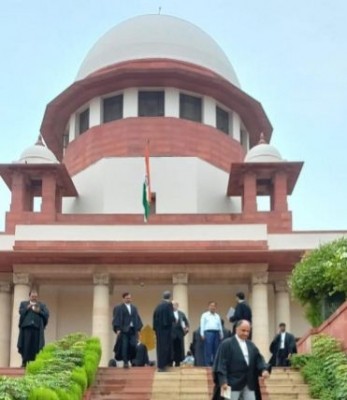
New Delhi, The Supreme Court on Friday issued notice to the Centre on petitions arising out of Delhi High Court split verdict on the issue of marital rape.
A bench of Justices Ajay Rastogi and B.V. Nagarathna said the court will examine the matter, as the position of law has been existing for quite a long time. The bench sought Centre's response on petitions against the May 11 judgment of the Delhi High Court.
Advocate Karuna Nundy, representing All India Democratic Women's Association, submitted that the two judges of the high court have taken different views and they were unanimous that this matter should be decided by the apex court. Nundy emphasized that there was a substantial question of law involved in the matter. The top court decided to club all pending cases and scheduled the matter for further hearing in February, 2023.
Senior advocate Gopal Sankaranarayan urged the bench to tag along a matter, which is pending since 2018. He cited the plea filed by 'Youth for Equality', seeking a declaration that Explanation 2 to Section 375 that reads as "sexual intercourse or sexual acts by a man with his own wife, the wife not being under fifteen years of age, is not rape" is ultra vires Articles 14, 19 and 21 of the Constitution.
On May 11, a bench of justice Rajiv Shakdher and justice C. Hari Shankar expressed different opinions in the judgement on the exception to Section 375 of the IPC, which exempts forceful sexual intercourse by a man with his own wife from the offence of rape.
Justice Rajiv Shakdher supported striking down the contentious law stating that the exemption of the husband from the offence of marital rape is unconstitutional to which Justice Hari Shankar did not agree.
"The impugned provisions in so far as they concern a husband having intercourse with his wife without consent are violative of Article 14 and are therefore struckdown," said justice Shakder.
Petitions filed in the top court sought a direction to strike down of the exception granted to husbands under the Indian rape law. These petitions have been opposed by men's rights groups and others.


.jpeg)

